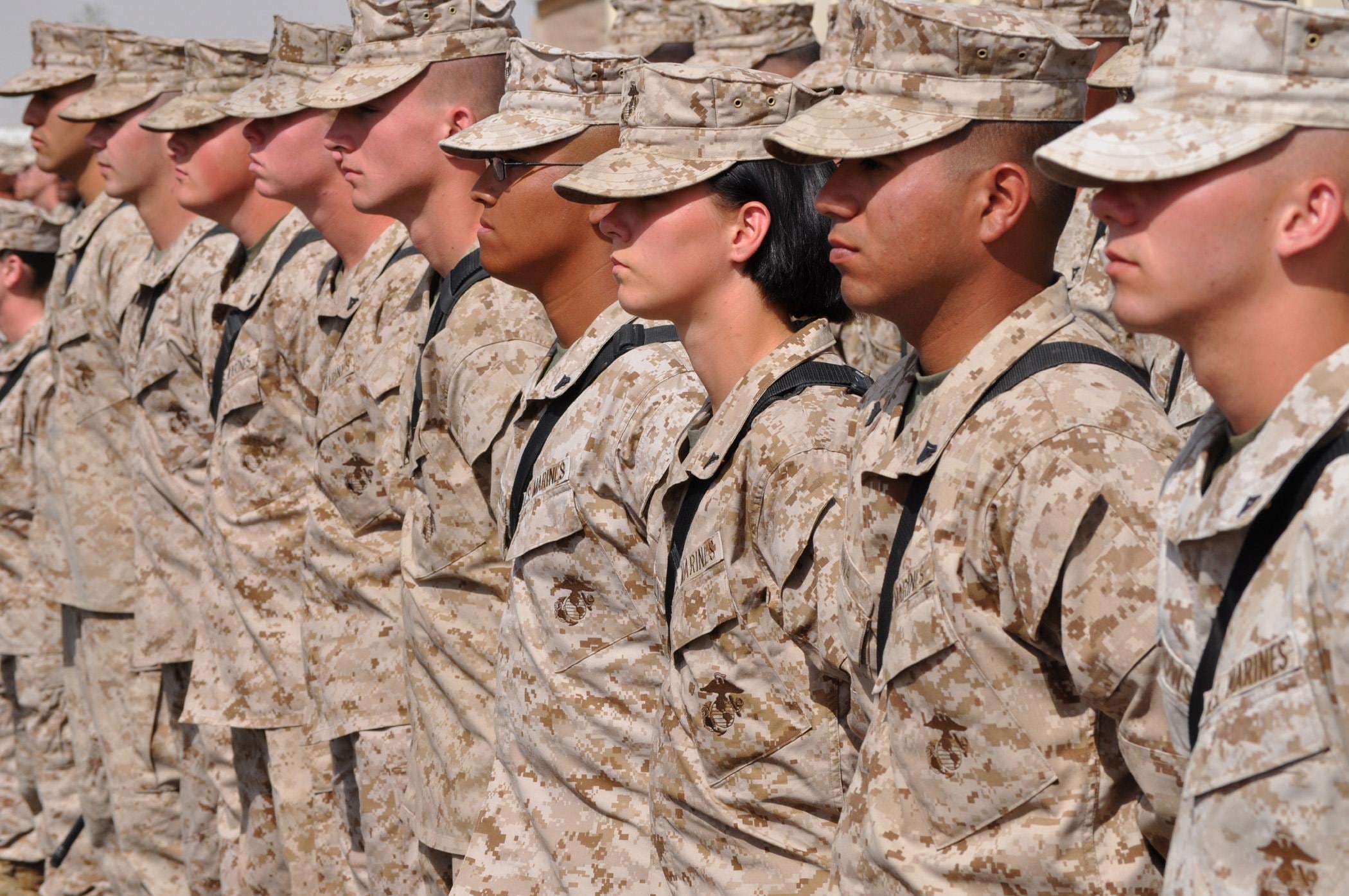After initiating an informal inquiry late last week, the Army on Thursday launched an AR 15-6 investigation into allegations that a platoon of soldiers was given a free pass to use racial slurs against each other during what was known as "Racial Thursdays."
Col. Donn Hill, commander of 1st Stryker Brigade Combat Team, 25th Infantry Division, appointed an investigating officer Thursday, said Lt. Col. Alan Brown, a spokesman for U.S. Army Alaska.
The soldiers in question belong to 2nd Platoon, C Company, 3rd Battalion, 21st Infantry Regiment, according to a member of the unit who spoke to Army Times.
The battalion belongs to the 1st Stryker Brigade at Fort Wainwright, Alaska.
Army Times on Wednesday first broke the news about the alleged "Racial Thursdays." The story has since gained widespread media attention, putting a spotlight on race relations in the Army.
"When I first got to my unit, someone said we should do 'Racial Thursdays' because it's been a tradition," said the soldier who spoke to Army Times on condition of anonymity. "It's something they made up where you can say any racist remark you want without any consequences. The platoon sergeant said no, but the shit is still going on."
The soldier, a staff sergeant, added: "It's degrading to the soldiers. We've had soldiers almost fight over the crap that's going on here."
The NCO, who is black, said no one has directed any racial slurs towards him because he made it clear he would not participate or put up with the practice.
But he also said he felt compelled to bring the issue to the media because the unit "has a bad habit of sweeping things under the rug."
U.S. Army Alaska initiated the commander's inquiry, which was an informal investigation at the unit level, into the allegations late last week, Brown said Wednesday.
"An informal complaint was made through command channels, and the commander has already assigned an investigating officer and the investigation is ongoing," Brown said at the time. "The command is extremely sensitive to any allegations that involve equal opportunity or discrimination and will investigate every allegation."
Brown, citing the ongoing inquiry, said he could not provide any more details.
"It's important to emphasize that these allegations are just that," he said. "They're allegations, and that's what the investigation has been assigned to find out, exactly what happened and if anything happened."
The unit where "Racial Thursdays" allegedly took place is the same unit that Pvt. Danny Chen belonged to.
Chen, who belonged to C Company, committed suicide Oct. 3, 2011, while deployed to Afghanistan. Authorities said Chen killed himself because he was hazed over his Chinese ancestry.
Chen was called names while in training, then was subjected to hazing after he was deployed to Afghanistan, according to his family. On the day of his death, Chen was forced to crawl about 100 yards across gravel carrying his equipment while his fellow soldiers threw rocks at him, the family said.
At least eight soldiers were either court-martialed or administratively punished in the case.
"There is absolutely no connection between this current investigation and the case of Pvt. Danny Chen," Brown said. "Treating all soldiers with dignity and respect is something this command takes extremely seriously, and when there are any indications that those values are not being followed, the command will absolutely make inquiries, conduct appropriate investigations and take action as necessary."
The NCO who spoke to Army Times said he filed an equal opportunity complaint against his platoon leader, who allegedly encouraged "Racial Thursdays" as a way to build morale and camaraderie.
"It's a shame that it's coming to this, but I'm not even making this up. I'm not making any of this up," he said. "Somebody needs to be relieved."
Lt. Cmdr. Nate Christensen, a Defense Department spokesman, said DoD "encourages resolution of workplace disputes and allegations of discrimination at the lowest level using the chain-of-command."
However, in a statement to Army Times, he added, "If civilians and service members are unable to find a resolution at the lowest levels, they have the right to pursue their claims, respectively, through established civilian equal employment opportunity (EEO) complaint processes or military EO complaint or inspector general processes, as appropriate."
Another soldier in the unit, a junior enlisted who also asked to remain anonymous, verified what the NCO told Army Times.
"The way it was put to me was it was a tradition among the guys," the junior soldier said. "Every Thursday, they wouldn't make you, you didn't have to participate, but they'd remind you. Everybody would get a joke in or one person would be picked out and everybody would say jokes to that one person."
The junior soldier recalled one incident, saying "I remember it like yesterday."
"A soldier I'm pretty good friends with, he was getting picked on the whole entire day until we were off work," he said. "He's Latino. They were calling him wetback, border jumper, those kinds of jokes. He would say some jokes back, but he got to the point where he wanted it to stop. He and another soldier almost got into a fight, and guys had to step in between them and keep them apart."
The junior soldier said he was afraid to speak up against the practice.
"For the soldiers who are minorities, we don't want to be looked down upon or looked at as outcasts or traitors or Blue Falcons, so we didn't open our mouths," he said.
The junior soldier said he didn't expect to encounter incidents like "Racial Thursdays" in the Army.
"We're all young guys and we all joke and play around, but I wouldn't expect those kinds of jokes," he said. "It was wrong."
The NCO who spoke to Army Times said he's been in the Army for 10 years and he has never encountered anything like "Racial Thursdays."
"I care that we should have people who care about soldiers, no matter their race," he said. "And even if you're playing, you don't play like that. There are consequences to your actions. This has to stop."
Christensen stressed the importance of diversity across DoD.
"Diversity encompasses more than race and gender -- we seek to include diversity of thought, background, language, culture and skills. Our force comes from a diverse populous, and certainly our military is better served when it reflects the nation it serves," he said.
Michelle Tan is the editor of Army Times and Air Force Times. She has covered the military for Military Times since 2005, and has embedded with U.S. troops in Iraq, Afghanistan, Kuwait, Haiti, Gabon and the Horn of Africa.





